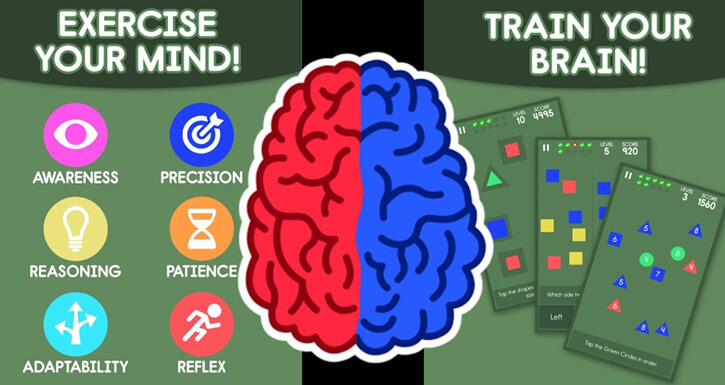In recent years, there has been a growing interest in brain training games and their potential benefits for children. I was curious about what exactly is meant by "brain training" since I usually associate training with physical exercises for the body. But can the brain be trained as well?
After some research, I discovered that, much like going to the gym for physical exercise, there are exercises designed to stimulate and train the brain.
The Importance of Brain Training for Children
Since I primarily work with children aged 7 to 16, I was intrigued by how these exercises could affect them. I found that children can greatly benefit from neurobic exercises. But what exactly is a neurobic exercise?
What is Neurobic Exercise?
In simple terms, neurobics is the science of brain exercise. Its goal is to help maintain memory and improve the ability to learn new information. The term "neurobics" was coined by Lawrence Katz, Ph.D., and Manning Rubin to describe exercises that help keep the brain fit.
Just as physical exercises focus on different muscle groups to enhance coordination and flexibility, neurobic exercises activate various areas of the brain to improve mental agility. They help improve memory skills, information retention, and creativity.
How Neurobic Exercises Work
For neurobic exercises to be effective, they should:
-
Challenge Your Senses: Use one of your senses in a new way by reducing reliance on the one you use the most. For example, if you mostly depend on vision, engage your other senses to stimulate your brain.
-
Engage Your Emotions: Do something surprising or unusual that makes your brain sit up and take notice.
-
Break a Routine: Try something unexpected to force your brain to adapt and think in new ways.
Examples of Neurobic Exercises
Here are some fun neurobic exercises for kids:
-
Follow the Rabbit: Track moving objects with your eyes to enhance focus and coordination.
-
Thumb and Little Finger Exercise: Alternate touching your thumb to your little finger and then switching hands.
-
Brain Teaser Riddles: Solve puzzles that challenge thinking and problem-solving skills.
-
Brush Your Teeth with Your Non-Dominant Hand: This helps improve coordination and forces the brain to think differently.
-
Shower with Your Eyes Closed: Stimulate your other senses by removing visual cues.
-
Do Mental Math: Solve problems in your head without using paper or instruments.
These exercises promote coordination between the left and right brain, which aids in the overall development of children.
Brain Training Through Games
Apart from neurobic exercises, children can also benefit from brain training games. These games are not only fun but also help improve cognitive skills.
Traditional Brain Training Games
Traditional games that encourage brain activity include:
-
Sudoku: A classic number alignment game that boosts logical thinking.
-
Scrabble: Enhances vocabulary and critical thinking.
-
Monopoly: Teaches strategic planning and decision-making.
-
Spot the Difference: Improves attention to detail and observation skills.
-
Riddles: Stimulates creative thinking and problem-solving.
-
Puzzles: Strengthens logical reasoning.
-
Mental Math Problems: Solving math problems without paper sharpens the brain.
Web-Based Game Engines
There are also many websites that offer brain training games specifically designed for children. These online game engines present different puzzles and challenges based on the child’s age, helping improve:
-
Response time to problems
-
Logical thinking abilities
-
IQ development
These games are excellent tools to engage children's memory, logic, and problem-solving skills, contributing to their overall brain development.
Brain Training Centers in India
In India, several training centers offer specialized courses on brain training. These programs are backed by international research and proven to be effective.
One of the leading companies in this space is Brain Child Learning's Brainy program. With a presence in over 13 countries and 30+ centers in India, Brainy provides a well-researched brain training program designed to enhance cognitive skills in children.


